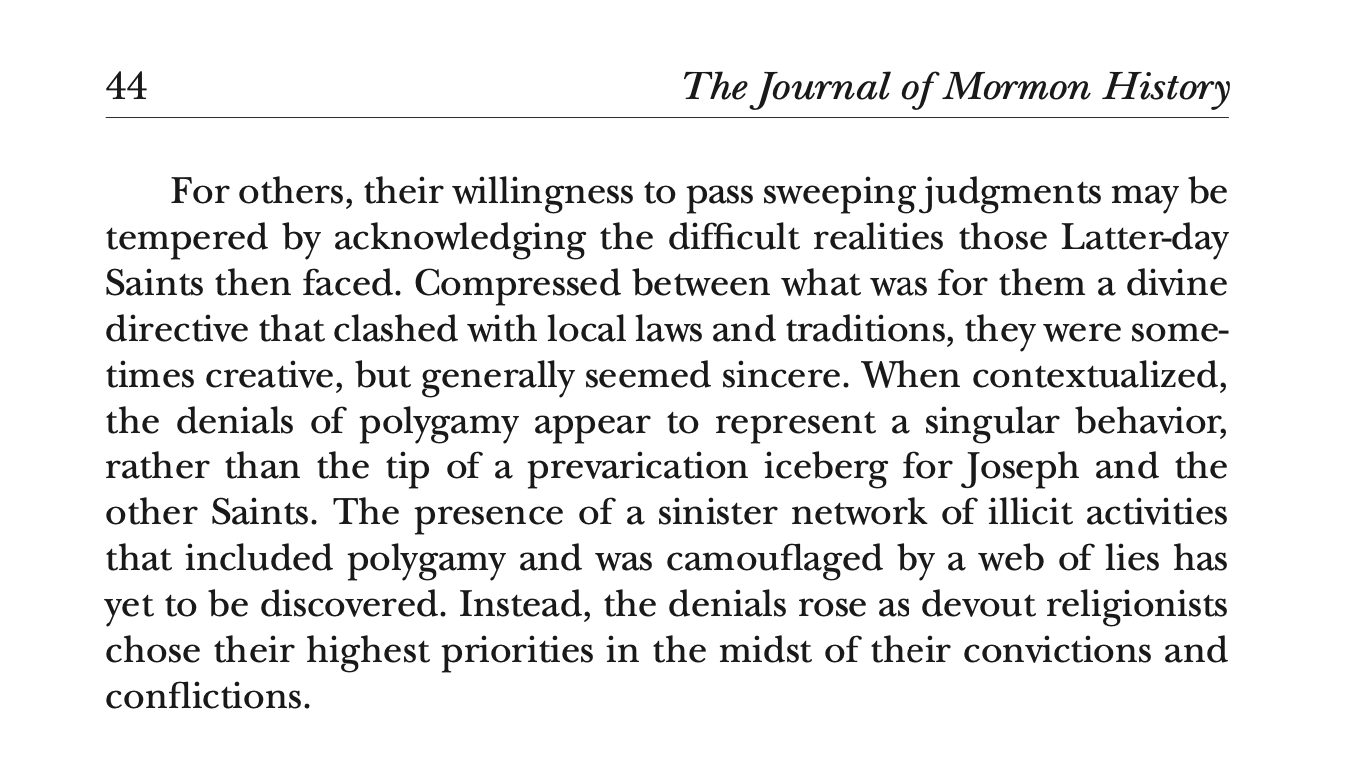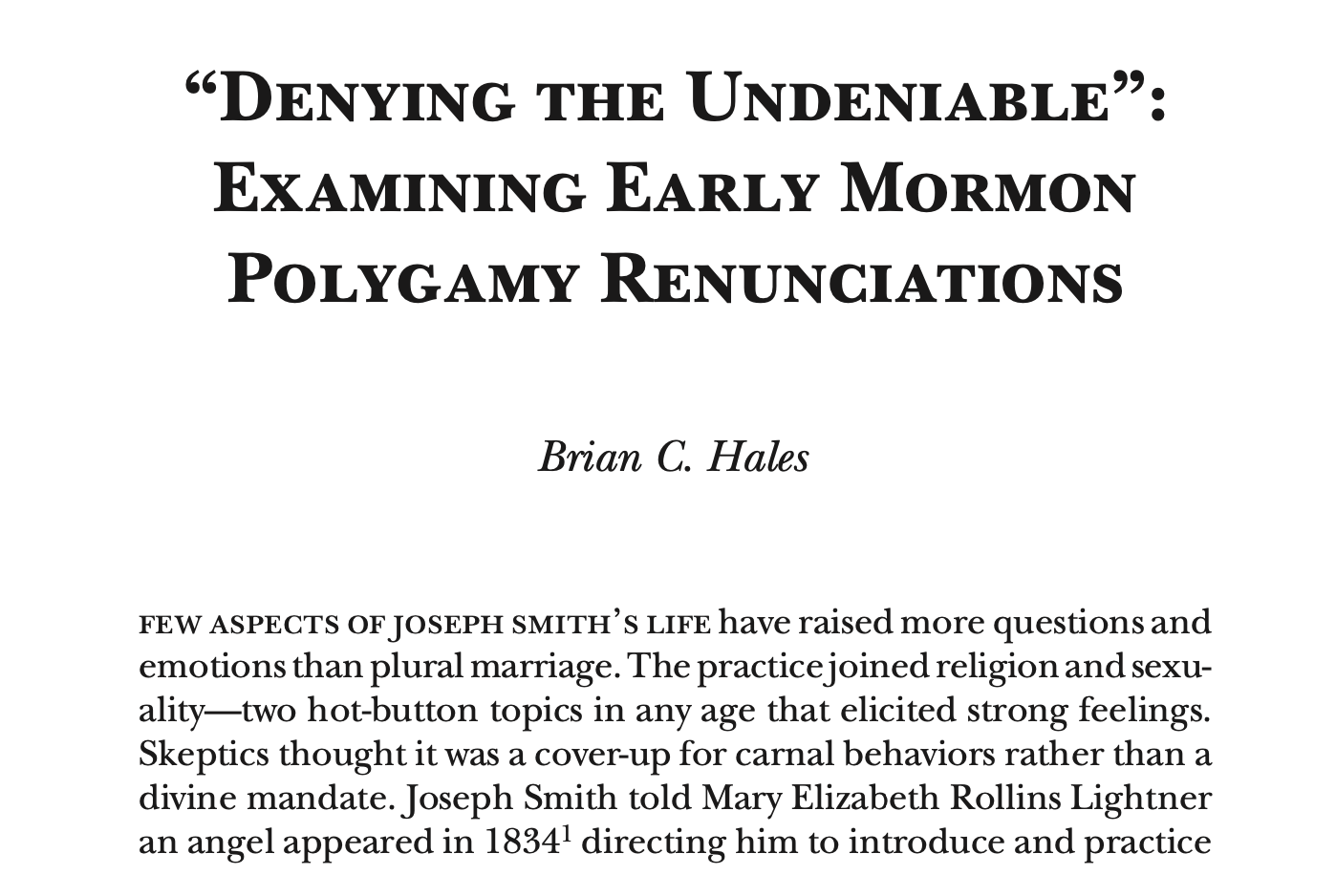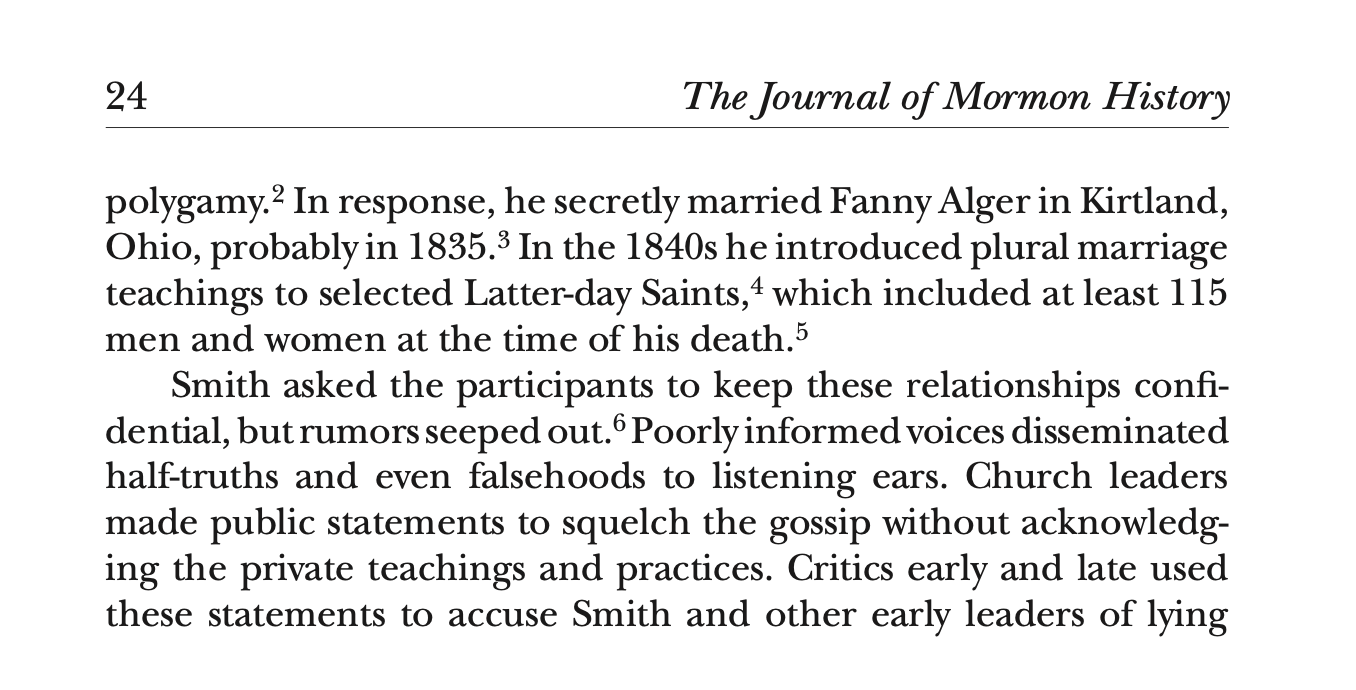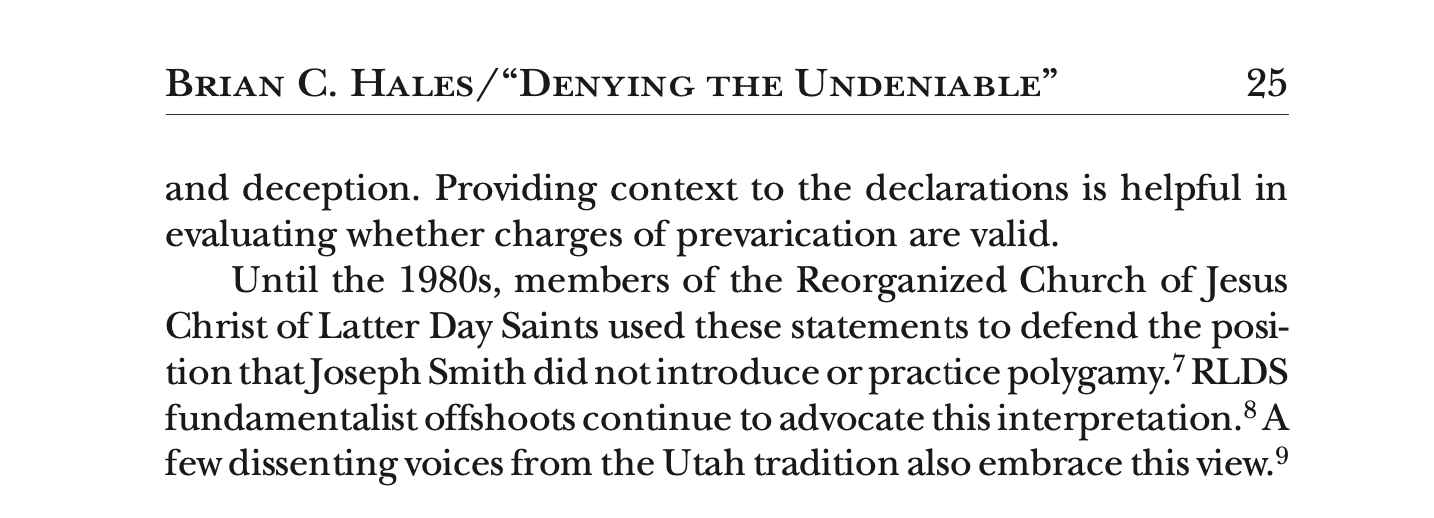Brian C. Hales Journal of Mormon History article exploring Joseph's denials of practicing polygamy.
- Type
- Academic / Technical Report
- Hearsay
- Secondary
- Reference
Brian C. Hales, "'Denying the Undeniable': Examining Early Mormon Polygamy Renunciations," Journal of Mormon History 44, no. 3 (July 2018): 23-44
- Scribe/Publisher
- Journal of Mormon History
- Audience
- Reading Public
- Transcription
Few aspects of Joseph Smith’s life have raised more questions and emotions than plural marriage. The practice joined religion and sexuality—two hot-button topics in any age that elicited strong feelings. Skeptics thought it was a cover-up for carnal behaviors rather than a divine mandate. Joseph Smith told Mary Elizabeth Rollins Lightner an angel appeared in 1834 directing him to introduce and practice polygamy. In response, he secretly married Fanny Alger in Kirtland, Ohio, probably in 1835. In the 1840s he introduced plural marriage teachings to selected Latter-day Saints, which included at least 115 men and women at the time of his death.
Smith asked the participants to keep these relationships confidential, but rumors seeped out. Poorly informed voices disseminated half-truths and even falsehoods to listening ears. Church leaders made public statements to squelch the gossip without acknowledging the private teachings and practices. Critics early and late used these statements to accuse Smith and other early leaders of lying and deception. Providing context to the declarations is helpful in evaluating whether charges of prevarication are valid.
Until the 1980s, members of the Reorganized Church of Jesus Christ of Latter Day Saints used these statements to defend the position that Joseph Smith did not introduce or practice polygamy. RLDS fundamentalist offshoots continue to advocate this interpretation. A few dissenting voices from the Utah tradition also embrace this view.
- Citations in Mormonr Qnas
The B. H. Roberts Foundation is not owned by, operated by, or affiliated with the Church of Jesus Christ of Latter-day Saints.




